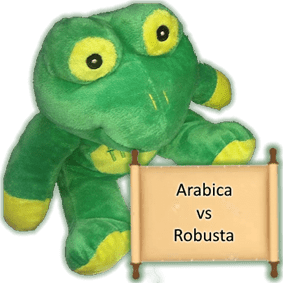We regularly taste new coffees, some we know immediately are terrible soem we need to test further.
Once they have made it past the initial tests, the decision on what coffees we are happy to sell is linked to two crucial factors for me, its drink-ability and its value proposition.
To make the basic grade, before we even consider a coffee it has to be highland and shade grown and show good characteristics in the cup. However it is one thing cupping a coffee and finding it scores about 80/100 but another thing assessing the drink-ability of a coffee. Drink-ability is linked to the morishness of the coffee. If you find that you are drinking a cup of coffee (I drink primarily double espressos) and that you get to the end of the cup quickly or you find yourself getting up to help yourself to another cup, then it is a very drink-able coffee.
A coffee that is very drinkable the cost becomes a minor issue. As a coffee become less drinkable to the point that say you find some cold coffee at the bottom of the cup since you forgot to drink it, the price becomes more important. Just remember we do have to offer a variety off coffees and we have some client that are price sensative, so in a prefect world I would not have to consider this, but I do.
So this week we ordered and listed two coffees:
- CIGRAH SHG from Honduras, I suspect this coffee is easy to over roast, and that be why we have struggled a bit. It would easily score 80+ for cupping scores, but the coffee itself is not very morish. It is a pity is some way since CIGRAH (Comercial Internacional de Granos de Honduras) is a member of the Mercon Coffee Group. They do seem to produce better coffees, it just looks like the SHG is more of a okay coffee, and we have picked that up. So although it was initially on offer we have removed it from our offering.
- Tres Maris from Guatemala, we started doing this coffee after reading a few reports on it. We had been warned that the quality did vary, and I am sure that this one is a good quality but nothing special. It was more drink-able that the SHG, but I was not convinced I could justify the price we had to sell it a
These reasons why I am not a big fan of grouping coffee by the country they come from. Assuming a coffee’s quality is good because it comes from a country is a VERY bad idea. It is a bit like selling a sparkling wine as Champaign because it comes from France. I find it a good way for coffee people to hide behind their lack of research into the product they sell. The farm / co-op a coffee come from is extremely important and if you are selling a coffee based on a country it is from you may as well just make up names for the coffee and call them you one thing.



